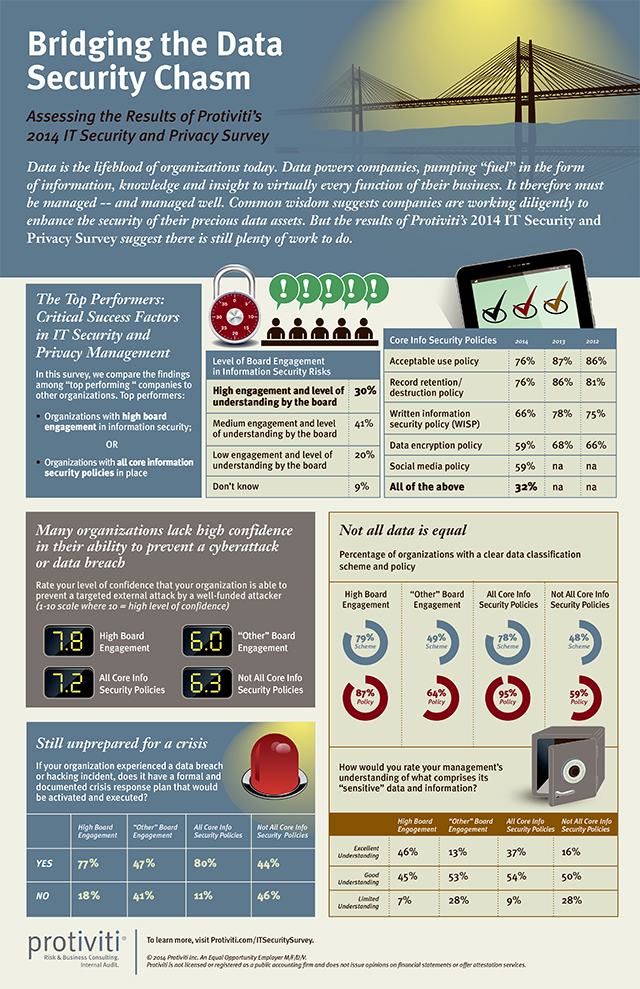IT professionals not confident they can prevent cyber attacks

Despite the number of high profile attacks in recent months, many organizations are still lacking confidence in their ability to prevent a cyber attack or data breach.
These are the findings of a new survey from risk consultancy firm Protiviti which also shows that companies aren't properly preparing for crises and often don’t have adequate core data policies.
"Our survey results tell a story of gaps between where companies currently stand and where they should be in relation to fundamental elements of IT security. Some progress has been made since our last survey, yet many organizations still fall short of important standard protocols for IT security and privacy," says Ryan Rubin, managing director with Protiviti and UK leader of the firm's IT security and privacy practice. "Companies need to take more action in relation to the risks they recognize to better protect their crucial data".
The survey uncovers five main themes which indicate that companies need to improve their data policies. First is a lack of confidence in their ability to prevent attacks. Despite executive management having a higher awareness of the possibility of attack, the creativity of attackers leads to lower confidence among IT staff.
Secondly companies are not preparing for crises. The survey finds a year-on-year jump in the number of organizations without a formal and documented crisis response plan to execute in the event of a data breach or cyber attack.
Third, board-level engagement leads to better preparation. Organizations whose boards are concerned with how the organization is addressing its risks, have significantly stronger IT security profiles. However, the survey finds that one in five boards have low engagement.
Lack of policy is the fourth key theme. One in three companies doesn't have a written information security policy and over 40 percent lack a data encryption policy. One in four don't have acceptable use or record retention/destruction policies. These represent critical gaps in data governance and management, and they can carry major legal implications.
The final theme is inequality of data. The percentage of organizations that retain all data and records has more than doubled but this isn't necessarily a positive development. The report finds a relatively large number of organizations which don't prioritize data that is processed and governed in a specific way. Even fewer companies appear to prioritize data that is highly regulated such as payment and healthcare-related information.
There are some positive findings, principally that enterprises are becoming more aware of their data lifecycle -- how and where data is stored. Also CIOs are more likely to take primary responsibility for security than in recent years.
The full report is available on the Protiviti website and the results will be discussed in a webinar on September 30th. You'll also find a summary of the findings in infographic form below.
Photo Credit: Alexander Kirch/Shutterstock
